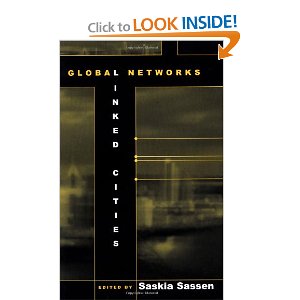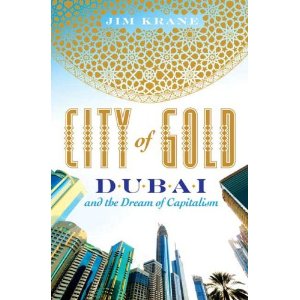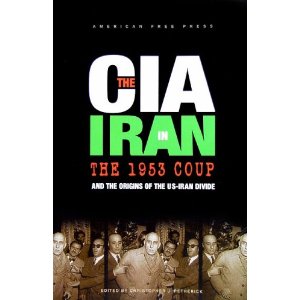
Saskia Sassen (Editor)
4.0 out of 5 stars Almost on the Mark, October 15, 2010
By Retired Reader (New Mexico) – See all my reviews
This book, edited by urban sociologist Saskia Sassen, takes a unique look at the phenomenon of globalization in terms of inter-connected cities held together by commercial ties, telecommunications, and commonality of interests. The book provides some important insights about the role of cities in globalization. Sassen and her colleagues appear to view globalization as creating a networked type of organization with cities serving as nodes and international telecommunication systems serving as connectors. This is a remarkable concept.
Yet the book is seriously flawed by the use of improper or imprecise terminology by its contributors. Terms like `networks', `nodes', and `architecture' are thrown about without much regard for what those terms actually represent. Their constant misuse in this book makes for very confusing reading and obscures the very valid points that the book strives to make.
Although the book was published in 2002 none of its contributors apparently have ever heard of the misnamed Global Telecommunications Network. This is the generic title for a compilation of independently owned and operated international telecommunication (carrier) networks. These networks incorporate domestic and international carriers each of which consists of transmission lines (largely fiber optic cable and satellite) coupled with relays, switching centers and various sub-stations. Nor do any of the authors understand the content carried by these networks is provided by various public and private service providers such as Internet Service Providers (ISPs) and SWIFT (a private banking service provider). Since the inter-connectivity between cities (and nations) pretty much depends on access to the Global Network, as does international commerce, this is a serious error of omission.
Also there are far too many statements in this book that simply make no sense in terms of telecommunications infrastructures. For example, Stephan Graham informs the reader that “the public, national telecommunication regimes that were ostensibly about throwing electronic networks universally across national space economies are being materially and institutionally splintered” and being replaced by “global strategies.” One can only guess that Graham is trying to say that national telecommunication networks are being absorbed into the Global Network. The seeming inability to use precise terminology leaves the reader confused.
To its credit the book becomes stronger when it moves from the theoretical to concrete examples in Part II (Cross Border Regions) and Part III (Network Nodes) with studies of specific cities. Yet here too one runs into puzzling use of terminology such as in the Beirut study by Huybrechts which he sub-titled “Building Regional Circuits.” `Circuits' in this context is meaningless when what he is referring to is re-establishing Beirut's import-export role as the principal international port in the regional economy.
In the end Sassen appears to have developed a valid way to describe globalization, but failed to establish either a standardized terminology or a valid model of a networked type of organization. As a result this book makes an unnecessarily weak case for globalization as best represented as a networked type of structural organization.







